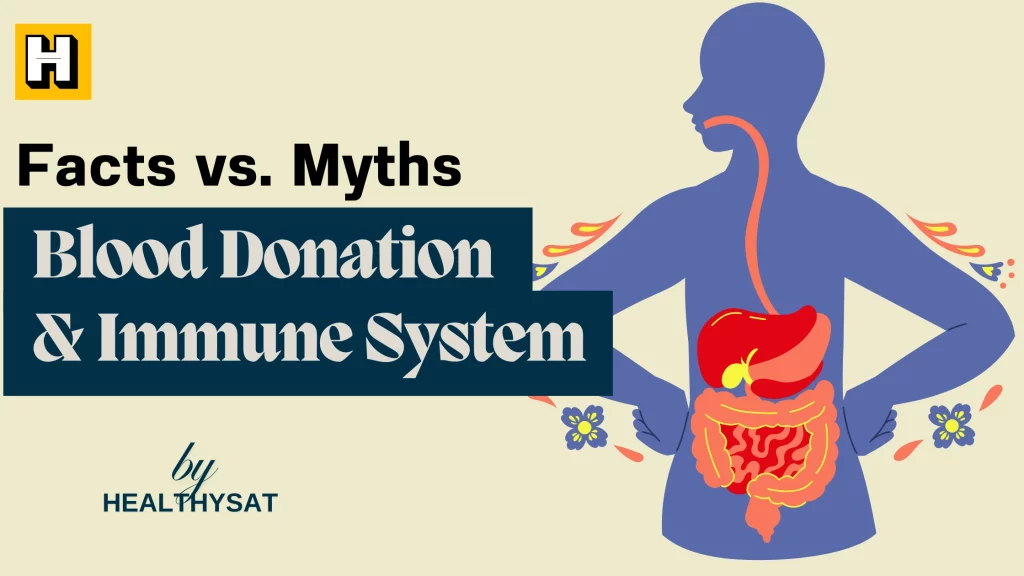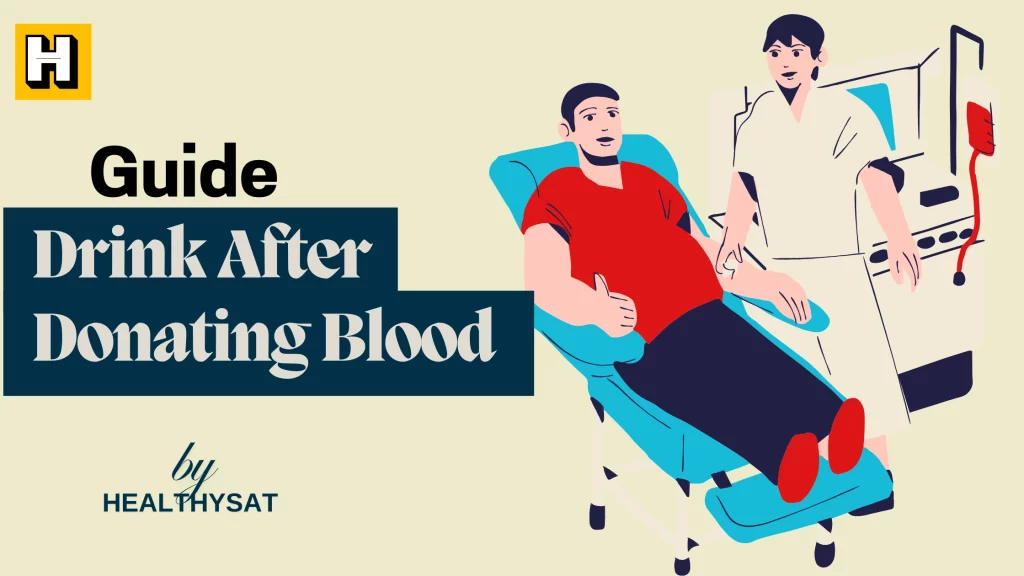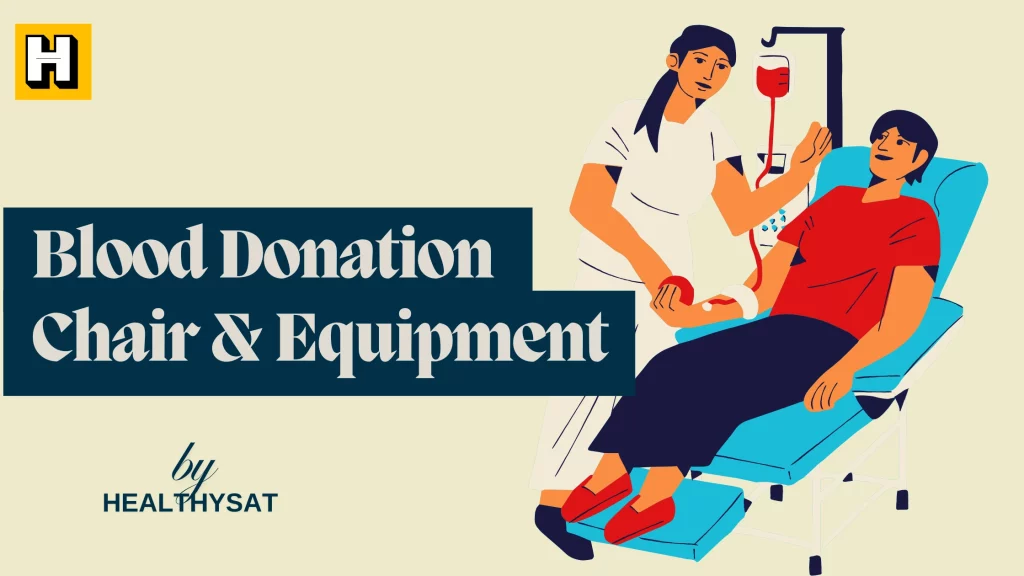Does donating blood weaken your immune system? When you give blood, is it possible that your immune system becomes weaker and you become ill? Knowing blood donation and immunity can help anyone who is considering this valuable gift. Scientific studies have an answer to your worries stating helping you.
When you donate blood, your body experiences temporary changes as it works to replace the donated components. Is it possible that these changes could weaken their immunity and make them more susceptible to illness while people are getting sick with colds and flu? This guide looks at what happens to your immune system after you donate blood, according to science.
Millions of blood donations are collected every year and have been safely practiced for decades. If blood donation actually weakened the immune system, we would observe widespread evidence of this effect. Many frequent donors feel healthy, which indicates that their immune system is not greatly impacted and does not fail during the process.
If you are a first-time blood donor or someone who does it regularly, knowing the actual impact blood has on your immune system will help you figure out when and how often to donate. Let us look at what science says about this.
How Blood Donation Affects Your Body
A blood donation is when they take out nearly one pint (or about 470 ml) of blood from a person which is 10% of the total blood. Your donation is mostly red blood cells and plasma. It also contains some platelets and white blood cells. It is important to know what happens after you donate to your body’s immune system.
Once you donate blood, your body begins replenishing immediately:
- Fluid volume (plasma) replenishes within 24-48 hours
- Platelets return to normal levels within 72 hours
- Red blood cells regenerate over 4-6 weeks
- It takes weeks to months for iron deposits to recover
Blood donation has les effect on your immune system as white blood cells are not affected much by blood donation. You lose a tiny bit of your white cells during donation but the bulk of your white cells still remain in your body.
When blood is donated, the bone marrow responds by making more blood cells. This process of regeneration is really a mild stress that leads to stimulation of body systems. Some studies say this mild stimulation may have beneficial effects on the body similar to other moderate stressors, e.g. exercise.
The majority of donors hardly experience minor temporary symptoms after giving a blood donation:
- Slight fatigue for a day or two
- Mild reduction in exercise capacity
- Temporary decrease in blood pressure
- Minor arm soreness at the donation site
The cause of these affects is mainly due to reduced red carrers (which transport oxygen) and not due to harm to immune effectors. Most donors recover quickly due to following post-donation advice for rest, hydration and nutrition without any side effects.
Immune System Basics and Blood Donation
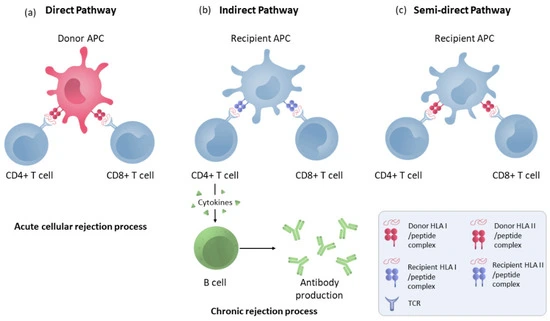
The immune system is a complex collection of cells, tissues and organs that work together to defend the body against infection. By understanding the basics, it becomes clear why blood donation does not affect the immune system much.
The immune system includes several key components:
- White blood cells that target and attack invaders
- Antibodies that recognize specific pathogens
- Lymphatic system that circulates immune cells
- Bone marrow that produces new immune cells
- Thymus, spleen, and lymph nodes which help in immunity
When you donate whole blood, the white blood cells taken from you is very small compared to your body. The human body possesses billions of white blood cells spread across various tissues and circulation. The amount of white blood cells in the donated volume is negligible compared to all the white blood cells that the body possesses.
Various kinds of blood donations impact your immune system differently:
- Giving blood takes out a little bit of white blood cells
- When you donate platelets, most of your white blood cells are returned
- Plasma donation has minimal impact on white cell counts
- Double red cell donation only sips the red cell and not immune ones
The immune system has a lot of extra capacity. Your body possesses the necessary support to continue fighting off infection thanks to its robust immunity system. The Model deals dynamically with problems like the minor one from blood donation.
Bone marrow continuously produces new white blood cells during your life. For many immune cells, turnover occurs in days to weeks. Your bone marrow continually creates fresh white blood cells throughout your life and many immune cells turnover in days to week.
Scientific Research on Blood Donation and Immunity
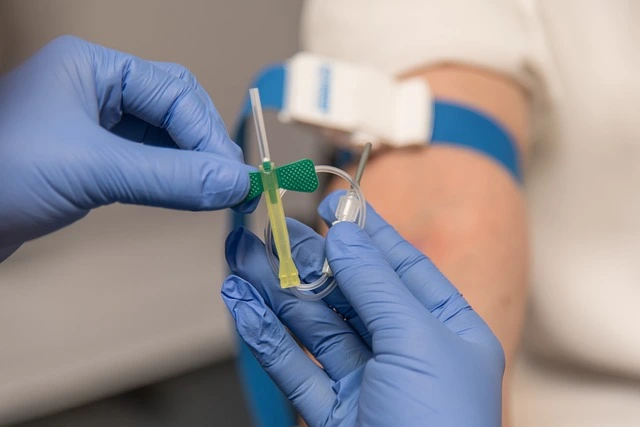
Research has looked into the question: does donating blood weaken your immune system? The research helps to know the short and long-term effects of blood donation on immunity.
A study published in Transfusion Medicine involving regular blood donors over a few years showed no rise in infection rate compared to non-donors. According to some studies, it looks like the regular donors can have lower rates of certain diseases but may also be due to the fact that only healthy people donate blood.
Studies have found that immune levels change after blood donation:
- No drop in white blood cell count that matters
- Minimal changes to inflammatory markers
- Temporary increases in certain immune signaling molecules
- No meaningful decrease in antibody levels
- Normal immune response to vaccination in regular donors
A review published in 2020 in the journal Vox Sanguinis looked at a number of studies on donor health. The authors concluded blood donation does not substantially impair immune function in healthy individuals. There weren’t any long-term changes or illnesses related to health after blood donation, the review found.
According to this theory, the consistent decrease of these iron stores (through blood donation) can help lower oxidative stress while also improving some immune regulating factor. Further study is needed to prove these possible benefits.
According to studies, when examining illness rates frequent donors, the results show:
- No increased risk of common infections
- Similar recovery times from illness compared to non-donors
- No elevated risk during cold and flu season
- Normal response to common pathogens
These scientific findings indicate that ordinary blood donation practices do not significantly undermine immune protection in healthy donors.
Temporary Changes vs. Long-Term Effects
When deciding if giving blood does weaken your immunity, a quick change and long-term change are different. Like all biological phenomena, blood donation makes short-term adjustments that correct themselves and have no long-term effects.
Temporary changes after blood donation may include:
- Mild Stress Response Activates Immune Functions
- Temporary inflammatory signals that help trigger blood cell regeneration
- Some immune cells are temporarily distributed throughout the body
- Overall blood volume decreases slightly but returns to normal within days
These temporary changes usually go away within a week and do not lead to increased risk of disease. Most donors can go back to their day-to-day activities within 24 hours with no noticeable change in their health or immune system.
Long-term studies of regular blood donors show:
- No chronic immune suppression
- Normal white blood cell counts between donations
- Healthy immune response markers
- No increased susceptibility to infections
- Normal lifespan of immune cells
Most healthy people—the body has the incredible capacity to regenerate blood components. Regular donation (if eligible under standard guidelines) doesn’t create any cumulative negative impact on the immune system.
Repeated donation may have cumulative effects in the case of iron stores. Regular blood donation can lead to iron deficiency in some people. Even though this doesn’t weaken the immune system directly, a harsh deficiency could impact health, including the immunity. That’s why blood centers check hemoglobin levels and give advice about iron supplements if required.
Studies show that donating at the recommended times ensures full recovery between donations. To ensure that the donor’s immune system normalizes and red cells regenerate properly after a blood donation, whole blood donation is allowed after every 56 days or 8 weeks.
Special Considerations for Different Donors
While the general answer to “does donating blood weaken your immune system” is no for most healthy donors, certain individuals may need to consider special circumstances regarding their immune health and blood donation.
People with these conditions should talk to their healthcare providers about donating:
- Recent vaccination (some vaccines require waiting periods)
- Recovery from recent illness or surgery
- Autoimmune conditions
- Chronic inflammatory disorders
- Current use of immunosuppressive medications
- Seasonal allergies during active phases
- Pregnancy or recent childbirth
Multiple things can affect how your body reacts to donating blood:
- Age (younger donors typically recover more quickly)
- Overall health status and fitness level
- Nutritional status, particularly iron levels
- Hydration levels before and after donation
- Sleep quality and stress management
- Seasonal factors like cold and flu prevalence
Blood donation centers have stringent protocols to screen potential donors. These checks safeguard both the donor and receiver by detecting any problems that can hamper donation. In some cases, a blood donation can be postponed until the immune system is optimum.
These techniques can help donors with certain health issues:
- Schedule donations during periods of good health
- Ensure excellent hydration before and after donating
- Focus on iron-rich foods or supplements as recommended
- Get sufficient rest the night before and after donation
- Donating during a season of low illness is better
- Discuss any concerns with blood center staff
Blood donation centers are a safe environment for everyone. Your donation will be deferred temporarily if you are putting your immune system at risk because of a medical condition you have.
Optimizing Your Immune Health as a Donor
If you’re worried that donation will make your immune system weak, you can follow ways to help boost your immune health before as well as after donation. From the donation and throughout the donation process your immune system remains strong.
Prior to donation, concentrate on the following:
- Stay well-hydrated for several days before donating
- Eat iron-rich foods like lean red meat, beans and leafy greens
- Get adequate sleep (7-9 hours) the night before
- Eat a nutritious meal 2-3 hours before your appointment
- Avoid alcohol for at least 24 hours prior to donation
- Put on comfortable clothes so that you become less stressed during the process
After donation, support your recovery with:
- Increased fluid intake for 48 hours
- Nutritious, iron-rich meals
- Adequate protein consumption to support cell regeneration
- Avoiding strenuous exercise for 24 hours
- Taking any recommended iron supplements
- Moderate physical activity after the initial rest period
Besides these recommendations for donations, there are general immune-supporting habits:
- Regular physical activity (resume 24 hours after donation)
- Ways to manage stress: meditation or deep breathing
- Get enough vitamins and minerals like vitamin C, D and zinc
- Limited alcohol consumption
- Avoiding tobacco products
- Sufficient sleep and rest
- Regular handwashing and other hygiene practices
Some donors choose to time their donations to try to avoid any impact. In case you are worried about your body’s immune functions, you can skip donation during high-stress periods or peak of illness seasons.
Keeping healthy is a plus point both for you and your blood recipients. You can also take care of your immune system to ensure a donation doesn’t lead to any negative experiences for you.
Common Myths About Blood Donation and Immunity
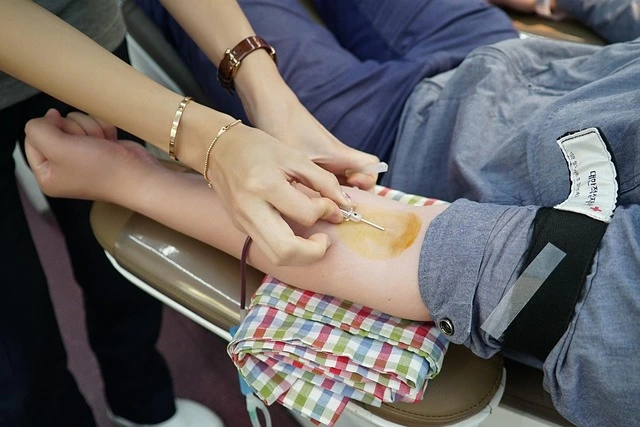
People believe that donating blood weakens your immune system. Let’s clarify the most popular myths with facts.
Myth: You will get sick faster if you donate blood.
Clinical studies show blood donors do not get infected more than those who don’t donate. The immune cells removed during donation are only a very small fraction of your total immune system that keeps on functioning normally after donation.
Myth: Giving blood uses up your white blood cells.
The majority of white blood cells remain in your tissues and circulation when donating just a small number. Your bone marrow makes white blood cells continuously and replaces the ones removed really quickly.
Myth: “Donating blood weakens the immune system for weeks.”
It’s a fact that any small change in immune parameters usually returns to normal in days. The temporary drop in total blood volume doesn’t significantly hurt immune function or surveillance of bacteria.
Myth: Regular donation does not weaken your immune system.
Regular donors’ immune function is shown to be normal. Numerous frequent donors report being in good health; some research shows that frequent donors may benefit from donating.
Myth: After donating blood, it’s good to take immune supplements.
It is fine to take any vitamin or supplement you wish. Just don’t take excess product of any type straight after the donation. Focus instead on iron-rich foods and proper hydration to recover well.
Myth: “Donating plasma weakens your immunity more than whole blood.”
Donating your plasma only takes a small part of your blood and your other components return. The impact on immune function is minimal and temporary.
Myth: You should avoid public spaces after donating, or you’ll get sick.
After donating, regular hygienic practices are enough. No extra precautions are needed to avoid public places unless you feel very tired.
Myth: “Older People experiences donation with a more immune suppression”
There’s no need to take extra precautions to avoid public spaces unless you feel quite tired. Myth: “Older adults experience more immune suppression from donation.”
When you know this, donors can feel better about giving blood, knowing the process does not significantly weaken their immune protection.
FAQ About Blood Donation and Immune Function
A blood donation does not weaken your immune system in any way. When you donate blood, the white blood cells we take away are only a tiny fraction of your total. You’re immune system still works efficiently straight after donating.
Within a day or two, anything amiss returns to normal. Even after donating blood, your immune system and body remain healthy for the most part.
Blood donation doesn’t put you at higher risk of getting sick. Most donors retain regular infection resistance throughout recovery.
Research involving frequent donors does not indicate reduced immunity over time. Donating blood at recommended intervals aids in full recovery.
If healthy, donating during cold/flu is not an issue Blood donations are extra helpful during these times when supplies tend to dip. Just be sure you’re not actively sick when donating.
Regularly donating blood does not affect vaccine effectiveness. Many kinds of vaccines let you donate blood immediately after they are administered. However, some vaccines require to wait to donate blood after taking the vaccines in order to keep you safe and the donated blood safe.
There is no evidence that blood donation worsens allergy symptoms. If you are feeling ill from allergy symptoms on donation day, you might want to reschedule for a more comfortable donation.
Donation eligibility may change if you have this disease. Talk to both your doctor and the team at the blood center about your condition.
Regular donation may slightly lower iron levels, but don’t worry. But very frequent donation could have severe iron depletion, which could affect immunity and overall health. Blood centers check hemoglobin levels to avoid this problem.
The majority of supplements will not affect your ability to donate. Make sure to tell staff at the donation center about anything you are taking. Some substances may affect your eligibility or the blood.
Conclusion
Donating blood may not weaken your immune system according to experts. It is not a cause for concern. Research consistently indicates that blood donation does not have an important impact on immune function of healthy people After you donate, there are temporary changes in your body that affect your red blood cells and fluid volume. But the cells and systems that protect you from getting sick are not affected.
Blood donation is a very safe activity which is well-tolerated by the human body. Within days, most of these will return to normal, due to the quick response of your bone marrow. Blood centers use screening processes that offer further protection for donors so that only those who are fit to donate do.
Most donors only need post-donation advice about rest, drinking fluids, and eating healthy to return to normal quickly. By following these easy steps, your body will restore the parts you donate and keep your immune defences strong throughout.
If you’ve been putting off blood donation because of immunity concerns, the scientific research should put your mind at ease. The donation of your blood does not hinder the ability of your body to fight off diseases. Making a donation is actually a safe way to help someone while your great body is showing how it can regenerate.
The next time you hear, “Does donating blood weaken their immune system?’ rest assured that you can tell anyone that, for healthy individuals who follow the guidelines for donation, it is no. This knowledge, in turn, removes one more barrier to blood donation, leading more and more people to donate blood.


